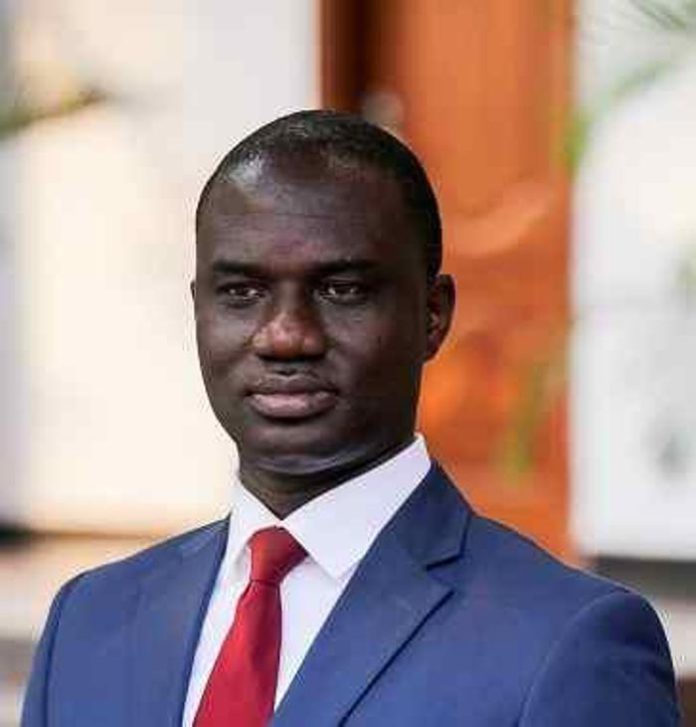The Chief Executive Officer of Premier Health Insurance has waded into what is gradually becoming a common phenomenon of pregnant women travelling outside the country to give birth.
While he does not condemn the act, Mr. Percy Asare Ansah believes, with the best of a health insurance cover, there are efficient hospitals in Ghana that provide quality services which pregnant women can take advantage of and avoid the stress and likely complications that come with travelling pregnant.
“Sometimes people are not aware of what we have in this country. We have very good private hospitals that will take care of pregnant women and you need not pay extra to go outside to do it,” he said.
Maternal Mortality
Even though maternal mortality has reduced drastically in Ghana to some 319 deaths per 100,000 births in 2015, cases of pregnancy related deaths in Ghana have forced some Ghanaians to look elsewhere for safe delivery.
Data about the number of pregnant women who have been flown outside Ghana, particularly to UK or US for safe delivery is limited but the phenomenon is becoming popular especially for Ghanaians in the high-end bracket.
For a country that is looking to meet the Sustainable Development Goals, 2030 of a global maternal mortality ratio of less than 70 per 100,000 live births, Mr Percy Ansah says every aspect of our health delivery system, particularly Private Health Insurance is important to achieving that goal.
He found it worrying, that a section of Ghanaians, however small, will take the risk of traveling pregnant just so they can have a safe delivery outside Ghana.
Risk
Research has shown that long distance travel for pregnant women is becoming increasingly common globally with women not adequately prepared in terms of insurance and travel advice.
Concerns have also been raised about the radiation exposure associated with air travel which leads many airlines to confine their stewardesses to ground duties during pregnancy.
For passengers travelling pregnant they are expected to present medical records, a medical letter or certificate from doctor or midwife confirming delivery date and no complications for travelers who are beyond 28 weeks pregnant. Travel is allowed up to the 36th week for single pregnancies and 32 weeks for multiples.
In the face of all these risks and complicated processes, Mr Ansah insists if Ghanaian women must travel out pregnant, it should not be because of lack of faith in the health facilities in Ghana.
“Don’t forget there are Ghanaians who already have NHS cards in UK and so giving birth is free. So all they do is to pay for tickets and go and give birth free of charge. It is not always the case that they run there because of better systems but because it is also free,” he stated.
That notwithstanding, Mr Ansah stated that pregnant women can also get the best of care right here in Ghana.
“I can also testify that there are very good hospitals able to deliver pregnant women without any problem.”
Private Health Insurance and Maternal health
He was emphatic that private health insurance plays a crucial role in maternal health, adding, prospective mothers must make it a point to be at least on one private health insurance in order to secure their deliveries in times of pregnancy.
“We offer full cover for maternity. Right down from pregnancy to delivery to post delivery. So that anybody who is pregnant will go through antenatal and you will have full cover. During delivery whether it is normal delivery or caesarian we also have cover for you.
“However you have to be on the scheme before you get pregnant. Insurance is for the unknown. Once you are on and are pregnant the cover will take care of you,” he stated.
When he was asked if one can join after pregnancy, he stated: “That is what is called adverse selection. Because the person knows she has this condition she is looking for a cover. In that case if I have to take care of you, I will evaluate the situation and give you the premium to pay. But once you are part of the scheme and you get pregnant, we take good care of without extra charges and I must add we have very good hospitals in Ghana to take of that.”
He emphasized that hospitals in Ghana also provide comprehensive healthcare for pregnant women.
“When you are pregnant the health of the mother is important, so is the health of the child in there. So we make sure the doctor is taking ultrasound investigations and in order to take good care of you and that of the child.
He charged women who intend to be pregnant, and the men who intend to make their women pregnant to secure the health of the prospective mothers and their unborn babies by getting on board a reliable health insurance cover.

